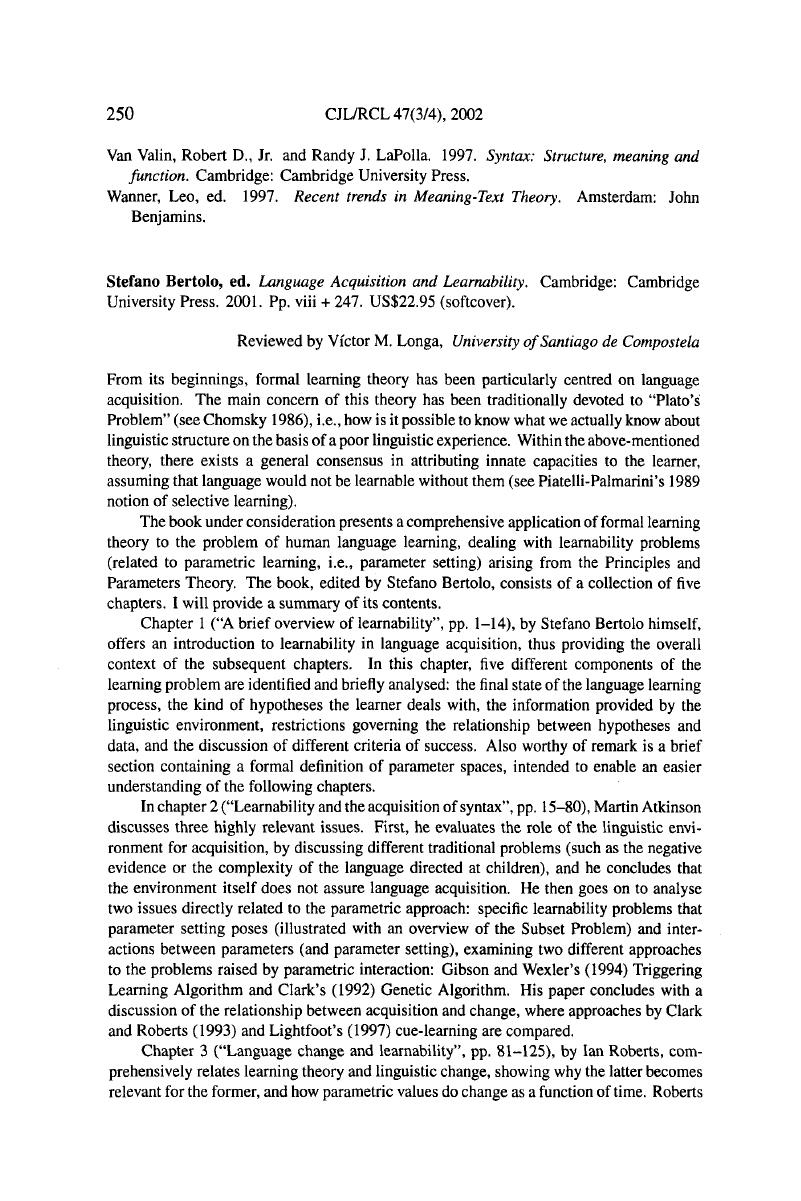No CrossRef data available.
Article contents
Stefano Bertolo, ed. Language Acquisition and Learnability. Cambridge: Cambridge University Press. 2001. Pp. viii + 247. US$22.95 (softcover).
Published online by Cambridge University Press: 27 June 2016
Abstract
An abstract is not available for this content so a preview has been provided. Please use the Get access link above for information on how to access this content.

- Type
- Reviews/Comptes rendus
- Information
- Canadian Journal of Linguistics/Revue canadienne de linguistique , Volume 47 , Issue 3-4 , December 2002 , pp. 250 - 253
- Copyright
- Copyright © Canadian Linguistic Association 2002
References
Chomsky, Noam. 1986. Knowledge of language: Its nature, origins and use. New York: Praeger.Google Scholar
Chomsky, Noam. 2000. Minimalist inquiries: The framework. In Step by step: Essays on minimalist syntax in honor of Howard Lasnik, ed. Martin, Roger, Michaels, David and Uriagereka, Juan, 89–155. Cambridge, Mass.: MIT Press.Google Scholar
Clark, Robin. 1992. The selection of syntactic knowledge. Language Acquisition
2:83–149.CrossRefGoogle Scholar
Clark, Robin, and Roberts, Ian. 1993. A computational model of language learnability and language change. Linguistic Inquiry
24:299–345.Google Scholar
Crain, Stephen. 1991. Language acquisition in the absence of experience. Behavioral and Brain Sciences
14:597–650.Google Scholar
Lightfoot, David. 1982. The language lottery: Toward a biology of grammars. Cambridge, Mass.: MIT Press.Google Scholar
Longa, Víctor M.
1999. The status of transformations in the Minimalist Program and the logical problem of language acquisition: An apparent disagreement. Theoretical Linguistics
25:161–178.Google Scholar
Piatelli-Palmarini, Massimo. 1989. Evolution, selection and cognition: From “learning” to parameter setting in biology and in the study of language. Cognition
31:1–44.Google Scholar


